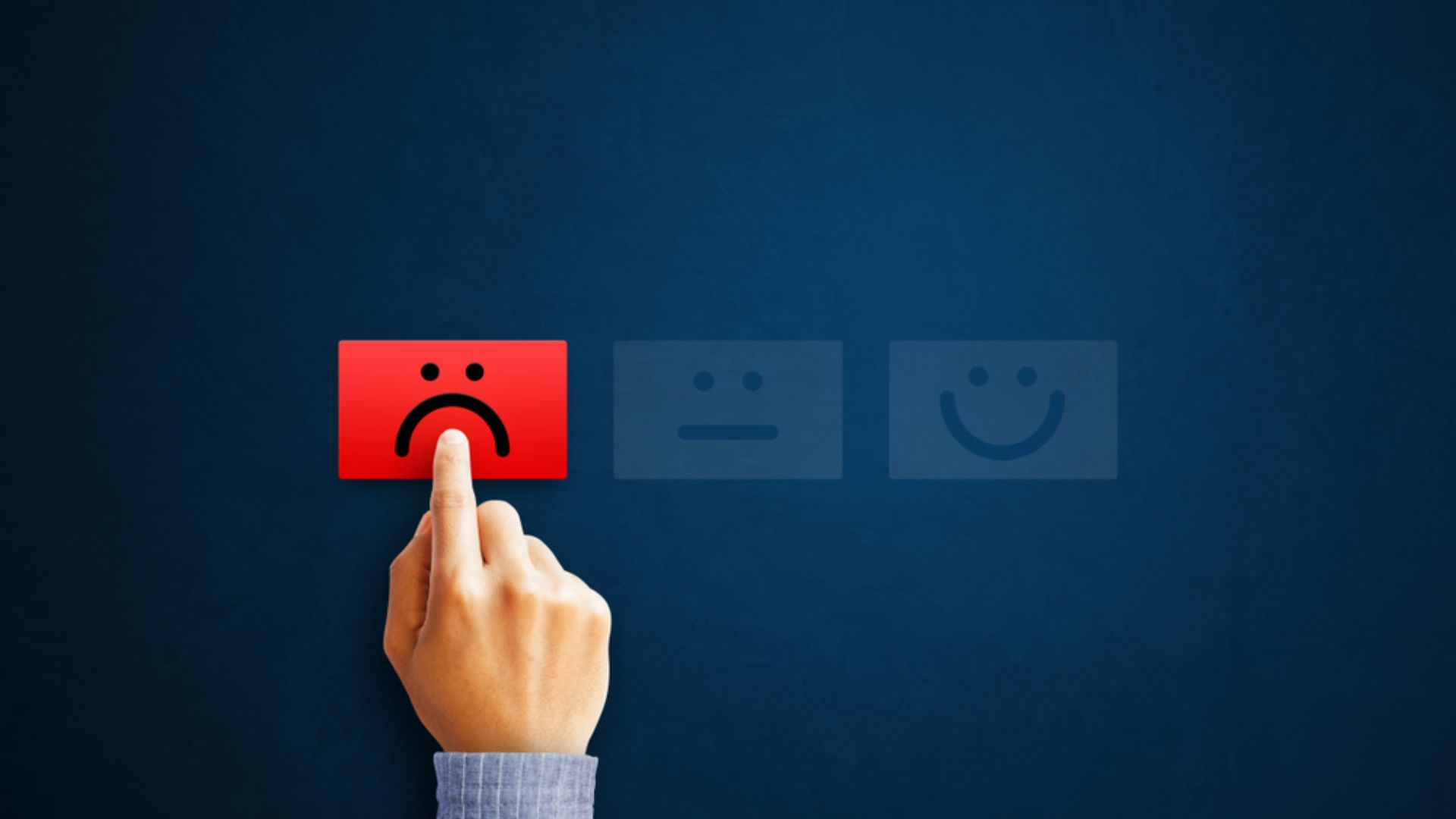
In the ever-evolving landscape of Search Engine Optimization (SEO), website owners, marketers, and digital strategists must understand the concept of "Negative Content." Harmful content, often overshadowed by its positive counterpart, refers to the type of content that can adversely affect your website's search engine rankings and overall online presence.
It encompasses various elements, such as low-quality or duplicate content, keyword stuffing, spammy links, and even harmful user-generated content. To navigate the complex world of SEO effectively, it's essential to grasp the nuances of harmful content, its impact on your website's performance, and how to mitigate its effects.
Competitors or individuals can carry out negative SEO with a vendetta against the website. It is important to regularly scan websites with security software to protect against negative SEO attacks. Identifying an actual case of negative SEO can be tricky, but it is essential to focus on making the website better rather than ignoring threats and attacks.
What Is Negative SEO?
The unethical tactic of purposefully undermining a rival's search engine rankings is known as negative SEO. Link spam is mainly used for this, undermining a website's Google authority.
Representatives from Google claim that since Google can identify and reject spammy, low-quality links, it is safe to ignore harmful SEO efforts. The SEO community is still dubious about this, though.
The main reasons for their suspicion include the success that specific negative SEO strategies have been found to have, as well as Google's proven ability to penalize websites for engaging in manipulative techniques.
Why Is It Important To Secure Your Website From Negative Seo?
Although search engines such as Google have taken steps to reduce the harmful effects of SEO, this does not mean that your website is entirely safe.
Drop In Organic Search Traffic
Building links that Google will consider to be link spam to a competitor's website is the main tactic used in negative SEO. The website will be demoted in the search results as the "punishment" for link spam.
Furthermore, attackers try to weaken the website's subject relevancy and even link it to spammy search phrases by using irrelevant, spammy anchor texts when pointing to it.
In the worst situation, a website might receive a penalty that causes it to be removed from Google's index. Positively, negative SEO attacks are frequently excessively forceful and simple to identify from conventional link-building.
Damaged Reputation
Local search and reviews are connected to poor SEO in another way. Negative reviews might be flooded into your website or Google company page by an attacker.
This may damage the reputation of your company and lower your local search engine results.
Hacked Website
In black-hat SEO, website hacking is a typical occurrence. Negative SEO implications include the possibility of attackers changing your robots.txt file, setting pages to "noindex," or inserting links to spammy websites from your website if they manage to access it, even for a little period. 30,000 websitesare hacked every day worldwide.
How Can Negative Content Harm Your Website?
Your Domain Authority Will Be Compromised
Google determines the domain authority of your website based on a number of variables. Little factors include your domain's history, the quality of your titles and descriptions, and the organization of the navigation. The caliber of your content is what counts most toward your domain authority.
You can be sure that your site will have a pitifully low domain authority if it is overflowing with keywords or has material that was clearly created by someone who does not speak English natively. There is nearly a direct link between the quality of your content and its domain authority. Additionally, you will rank higher the higher your domain authority is.
According to research by First Page Sage, achieving the top position on the first page of Google search results typically results in a 39.8% organic click-through rate (CTR).
Your Chances Of Earning Backlinks Will Fall
To get backlinks to your domain, you need content. High-quality material will inevitably lead to the publication and syndicating of connections from other sites. If you have good-quality material, people will only link to you from their external sites if they are able to navigate your website easily.
As a result, your incoming links will be few and irregular. Your search engine rankings will plummet, and you'll lose out on a ton of potentially valuable referral traffic if your backlink profile needs to be stronger.
You Could Lose Social Followers
Or you won't be as likely to acquire any new ones, at the absolute least. Engaging with people on social media is crucial to building and maintaining a large following, but it's also critical to draw in new followers and keep existing ones by syndicating quality material from your website.
You will lose followers if you start including links to poor-quality content on your website or if they visit your website to learn more about your brand and discover poor-quality content. Your content will have less of an impact, and your domain authority will decline as you lose followers.
You’ll Have Higher Bounce Rates
This is a guarantee if there is a lot of poor content on your website. After seeing just one or two pages, there is a considerably greater chance that any visitor to your site will leave. This implies that whatever traffic you get from search engines, social media, outside sources, or direct visits is essentially worthless. You might have no visitors without compelling content to draw in new ones.
Your Conversion Rates Will Plummet
The last, and maybe most crucial, point is that there is no possibility for your visitors to convert. Without consistent conversions, your website won't generate income, and your online marketing plan won't succeed.
Your most excellent chance of increasing conversion rates is to provide new visitors with high-quality content that will grab their attention right away, hold their interest long enough to read additional pages and provide them with clear directions on how to go on to the following stages of the process. Your users will only convert if your content is performing.
Types Of Negative SEO Attacks And How To Defend Against Them
The Spammy Link Building
Due to its ease of implementation, this form of negative SEO is the most prevalent. Many unscrupulous grey hat SEO firms exist that guarantee to increase a website's organic ranks and domain authority by directing thousands, if not millions, of questionable backlinks toward it.
Businesses that acquire these connections are nearly always severely penalized by Google's search algorithm. An abrupt and significant increase in backlinks from low-quality websites raises an alarm and necessitates more research into the domain in issue.
Organic rankings will suffer if the algorithm finds evidence of dishonesty, and they won't rise again until the spam is eliminated from the domain's link profile. In a 13-month study by Semrush, almost all 92.3% of the 100 top-ranking websites were found to have at least one backlink.
Actions You Can Take
You have a few tools at your disposal to monitor your backlink profile. Ahrefs and Monitor Backlinks are two beneficial resources. If you find a poor link, you can quickly disavow it from Google and stop it from hurting your rankings.
When you submit a disavow list, you are instructing Google to exclude the malicious links from its index of your website. Using Search Console Tools, you may accomplish this.
A discernible decrease in loading time is one indicator that your website is receiving a lot of backlinks all of a sudden. If so, it's worthwhile to employ the techniques as mentioned above to make sure spammy connections aren't the problem.
Fake Link Removal Requests
Competitors may also pose as you and issue requests for the removal of your top backlinks by email to the websites hosting them. These emails are sometimes rather straightforward and basic, like the one below:
“Dear Webmaster,
Our customer has asked us to take down the links pointing to your website from theirs. They're unnecessary now that Google's algorithm has changed.
Kindly take this page's link to [YOUR DOMAIN] down: [LINK TO IMPORTANT WEBSITE]
Thank you,
Smith (random SEO businessname)”
Actions You Can Take
These fictitious removal requests cannot be stopped at the source. It's more a matter of keeping an eye out for the warning indicators. Then repairing it. Use Ahrefs or a comparable tool to monitor your backlink profile. Your most helpful backlink from domains with a lot of authority deserves particular attention. These are the links that malicious actors will attempt to remove.
If one of your most essential connections disappears, Get in contact with the websites that took down your link, find out why it was taken down, and if you didn't realize it was done so at your request, ask them to put it back up.
Duplicate Content / Content Scraping
The scourge of all content authors is this. When someone steals your carefully chosen words and uploads them on another website, it's known as content scraping. The content thief typically merely wants free goods. They have no desire to damage your website. It's not impossible, but unlikely, at least not on purpose.
Google is forced to select which of the similar sites it should display in the top results if it discovers that your material is replicated elsewhere on the internet. Likely, the original page won't be selected as one of the top search results, no matter who created the material. This implies that someone else may divert visitors from your website and profit from your labor of love.
Actions You Can Take
Try searching for a section of your post on Google to see if any results come up. Additionally, Copyscape is a free plagiarism detector that may inform you if any of your material has been stolen and posted elsewhere.
Get in contact with the site owner if you discover that it has. Depending on the answer you receive, you may need to pursue the matter further and see a lawyer. Make sure your business conditions, however, accurately represent your stance on material republishing before it comes to that stage.
Additionally, you may inform Google that your URL was the original one to which the material was associated by adding canonical tags to your content. It effectively signals to the algorithm that, in a sense, yours is the master version. And it's a copy for everyone else. You should be able to manage duplicate material using this.
Fake Reviews
Rivals can try to damage your online reputation by adding a ton of fake bad reviews to your Google page. In the current digital world, when evaluations have a big impact, your business's success must respond to phony bad reviews.
Actions You Can Take
It's critical to keep an eye on your reviews in order to separate the real from the phony. Negative reviews don't always come from dishonest people, and they might reveal something about your advantages and disadvantages.
Use the reporting feature on Google, which is available through your Business Profile, if you believe a review is fraudulent.
Hacking Your Website
Negative SEO might entail website hacking, in which bad actors change the robots.txt file or alter code on the backend of your website. This may cause search engines to ignore your website as a whole or your best-performing pages.
Actions You Can Take
Strong security measures must be put in place if you want to protect your website from hacker attempts. To add an extra degree of security while signing in, start by turning on two-factor authentication for site access.
With the help of Search Console Tools, you can configure alerts to quickly alert you to any unusual activity so you can respond quickly in the event of unwanted access or adjustments. Make regular backups of your website to protect against any loss or manipulation of data, and make sure your antivirus program is up to date to protect against malware and other online risks.
How Do You Enhance SEO With Positive Content Strategies?
In the ever-evolving landscape of search engine optimization (SEO), positive content strategies play a pivotal role in not only improving your website's visibility but also in enhancing user experience.
High-Quality Content Creation
The foundation of SEO success lies in crafting high-quality, relevant, and engaging content. This means providing valuable information to your audience, addressing their needs, and solving their problems.
Search engines reward well-researched and informative content. Regularly update your website with fresh, unique, and comprehensive articles, blog posts, videos, and infographics to keep your audience engaged and returning for more.
Keyword Research And Optimization
Utilize keyword research tools to identify relevantkeywordsand phrases for your content. Optimize your content by naturally incorporating these keywords into your titles, headers, and body text. Ensure that your content flows naturally and doesn't overstuff keywords, as this can deter both readers and search engines.
Earn Backlinks Organically
High-quality backlinks from reputable websites are a strong signal to search engines that your content is valuable and trustworthy. To earn backlinks organically, focus on creating content that others in your niche or industry would find valuable enough to link to. Guest posting, influencer collaborations, and participating in online communities are excellent ways to build backlinks naturally.
Engage On Social Media
Social media platforms are not just for connecting with your audience; they also impact SEO. Share your content on social media channels to increase its visibility and encourage social sharing. Engaging with your audience on these platforms also builds a sense of community and trust. Social signals are becoming increasingly important in SEO algorithms.
Mobile Optimization
With the majority of internet users accessing websites through mobile devices, it's crucial to ensure that your website is mobile-friendly. Search engines like Google prioritize mobile-responsive websites in their rankings. Optimize your content and website design for mobile users to improve their experience.
User Experience (Ux)
A positive user experience is paramount for both SEOand user satisfaction. Ensure that your website is easy to navigate, loads quickly, and is free from technical issues. Implement clear call-to-action (CTA) buttons, logical site structure, and responsive design to keep users engaged and reduce bounce rates.
Regularly Update And Monitor
SEO is an ongoing process. Regularly analyze your website's performance using analytics tools and adapt your content strategy accordingly. Update outdated content, fix broken links, and stay updated with the latest SEO trends and algorithm changes.
FAQs About Negative Content
How Can Negative Seo Affect Your Website?
Negative SEO can lead to a drop in organic search traffic, damage your website's reputation, and even result in penalties from search engines.
What Are Some Common Types Of Negative Seo Attacks?
Common types of negative SEO attacks include spammy link building, duplicate content, fake reviews, and hacking attempts on your website.
What Is Content Scraping, And How Does It Harm A Website?
Content scraping is when someone steals your content and publishes it elsewhere. This can lead to your original content needing to be selected by search engines, diverting traffic to other websites.
A Quick Recap About Negative Content
Negative contentand negative SEO can severely harm your website's performance. It's vital to understand the various forms of negative SEO, such as spammy link building and duplicate content, and take proactive measures to defend against them. Regular monitoring and strong security practices are essential.
On the positive side, effective content strategies, including high-quality content creation, keyword optimization, and organic backlink building, can enhance your SEO efforts. Prioritizing user experience, mobile optimization, and staying updated with industry trends also contribute to improved website visibility.
In the dynamic realm of SEO, a proactive approach to mitigate negative impacts and implement positive strategies is crucial for online success. Stay vigilant and adapt to thrive.




